A close friend reminded me recently about the time I ripped into him on social media. Being two years ago I had actually forgotten about the incident. He clearly hadn’t.
Not one to enjoy confrontation of any kind, this little ‘episode’ was not really my style. Facebook is certainly not the place to be airing dirty laundry or having public and often futile disagreements.
But this one time, my friend hit a raw nerve – he touched the very thing that was a huge source of inner turmoil and sadness. He joked about one of the hardest things we deal with as young patients – having a greatly reduced capacity for employment. He didn’t mean any harm by it, but still it hurt. A lot.
One of the first questions we ask when we meet someone for the first time is what do you do for work? It often comes implicit with a denotation of social superiority; how important the work you do is and in what way are you contributing to society. Or even, how ‘good’ of a person are you.
Not working is generally something associated with the uneducated, the unmotivated and the disengaged. Have you seen how the media talks about people living on welfare benefits? Terms like burden and bludging get used a lot.
Perhaps you might disagree, but until you have experienced ‘that’ judgemental look when you tell someone taking care of yourself is your fulltime job, maybe you don ‘t completely understand the extent of the identity that comes with employment. Until I learnt to just lie, that question crushed me. The fact that my friends still joked about what I did all day goes some way in explaining the extent of the stigma attached.
The perception and ignorance that life was easy and the judgement that went with it was far more painful that many of the procedures I underwent or the complications of my failing lungs and my friends comment was certainly not an isolated experience.
My health became my career at time when all my friends were pursing their employment ambitions. My Facebook feed would be full of photos of graduations, study books and work trips. All things that I so desperately wanted – had always wanted. To be able to able to partake in the 9-5 grind became a distant and seemingly unreachable dream. Like any loss, I grieved for the career that I felt I was missing.
There was a time in my life not so long ago when my health routine was all encompassing. No my day wasn’t 9-5, it was actually often 6AM-11PM. Many days involved double shifts.
Violent and exhausting coughing fits were my alarm clock regardless of how tired I was. Unlike going to ‘work’ I didn’t get paid or receive holidays. Ever. My days looked nothing like a tea party with The Bold and The Beautiful. When I did spend my days on the couch, it meant I was too unwell to walk, talk or eat. It was far from relaxing or enjoyable. It was far from my choice or preference.
I remember one time when my health experience felt particularly consuming, I applied for a local babysitting job. The lady was after someone who she could call on semi-regularly as she herself had a chronic illness. Her remuneration of $5 dollars an hour would have been offensive to most 24 year olds, but desperate to have something beyond my own care in my life I happily applied and openly explained my situation. Needless to say despite my willingness and extensive baby sitting experience I wasn’t what they were after. The job stayed on gumtree, regularly edited for months.
My health routine was exhausting and unpredictable. I wanted nothing more than to switch treatments, appointments, pills, pharmacy orders and being freaking broke, for the luxury of clocking on and off as I walked through office doors.
I wanted my world to be more than just about me again. I wanted to be able to feel the pride of accomplishing more than just staying alive. To have diversity and conversations and trivial shit to deal with. Even the toughest jobs seemed glamourous and enticing. After all, I think most people would rather be the surgeon than undergoing surgery.
I wanted with all my heart to be able to answer that simple question what do you do for a job in a way the meant something to others. And that’s why my friends Facebook joke hurt so darn much. If he didn’t ‘get it’, who did?
My experience with my friend isn’t unique, there are series of memes out there in chronic illness land being shared with a mutual understanding (and laughing at peoples’ naivety). At least some of those people had once been on ‘the other side’. Nobody chooses to be sick.
There are many people out there for whom attending a place of work that is not home or the hospital would be the ultimate luxury. Because while others might pretend or even try to understand the importance of self care at a time of chronic illness or disease, the way society handles it says differently.
Like most things, as patients and people don’t want you to throw us a pity party or have you walking around on egg shells. We don’t always feel the need to talk about how we spend our days because when we do have the rare opportunity to hang out, get out of our health bubble, it’s nice to forget that we are professional sick people for enough time to enjoy a cup of coffee. If you ask though, we will most likely be happy to tell you because it means a lot to us that you understand our days are just as filled and exhausting as yours.
Chronic illness is not a cake walk. I wish it were different but my work is fighting for my life, and the very thing you despise every Monday is something I wish for with all my heart.




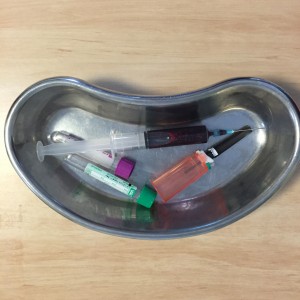
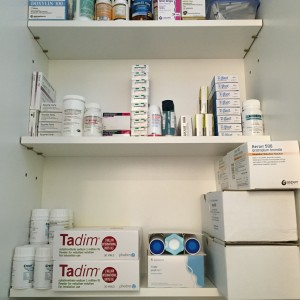
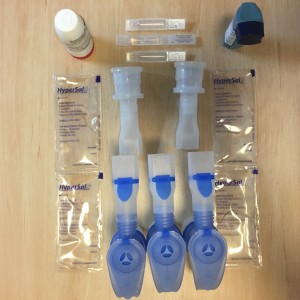
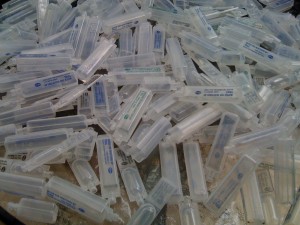

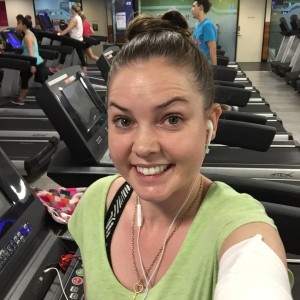
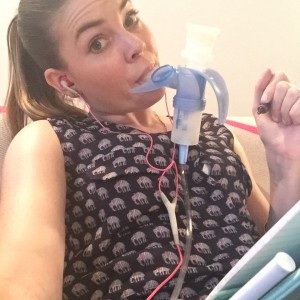





You must log in to post a comment.